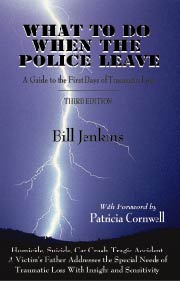State Sen. Leland Yee authored a bill to allow some offenders serving life-without-parole terms for murders they committed before turning 18 to petition the courts for resentencing after they serve 15 years. JULY 2013 SacBee:
California rolling back lengthy prison sentences for some juvenile offenders
Judge Cheryl Chun Meegan has dealt with David Dewayne Griffin before.
When the 23-year-old was a teenager who had been convicted of five felonies, including attempted murder, she imposed a prison sentence so long – 85 years to life – that he won’t be eligible for parole until he’s 99 years old.
That was in November 2010. Now, Griffin is back.
His is the first case to return to Sacramento County since the state Supreme Court decided last year that juvenile offenders who haven’t killed anyone can’t be sentenced to the functional equivalent of life in prison without parole.
Meegan took the case under submission late last month and will have to establish a new parole consideration date for Griffin. His lawyer is pushing for him to get a parole hearing within the next 10 years. The DA’s Office wants it set to no sooner than Griffin’s 48th birthday.
The California high court ruling at play in Griffin’s case – People v. Caballero – is one of two major breaks the state afforded last year to juvenile offenders who are serving massive prison terms as a result of their convictions in adult court.
The other was Gov. Jerry Brown’s signature on Senate Bill 9 by state Sen. Leland Yee, D-San Francisco, to allow some offenders serving life-without-parole terms for murders they committed before turning 18 to petition the courts for resentencing after they serve 15 years.
As of 2009, there were 2,623 inmates sentenced as juveniles who were serving life terms in California prisons, according to court papers filed on behalf of Rodrigo Caballero, the petitioner in the state Supreme Court case. A little more than 300 were serving life terms without parole at the time SB 9 was signed, according to the Pacific Juvenile Defender Center.
Sue Burrell, an attorney with the Youth Law Center in San Francisco, who co-authored an amicus brief filed on behalf of Caballero, said SB 9 and the Caballero case shows that a shift is taking place in the state’s approach to its most serious juvenile offenders.
“What’s happened is that crime is down, and juvenile crime in particular has really, really dropped,” Burrell said. “There isn’t that sense any longer that juvenile predators are on the tip of everyone’s tongue. Along with that, there’s an increased recognition that kids really are different than adults, and you need to take that into account at sentencing.”
Juvenile crime in California did plummet from 2006 to 2011, with arrests for violent offenses dropping 35 percent, from 17,079 to 11,158, according to the state attorney general’s statistics.
Former Sacramento County Sheriff John McGinness said a huge reason for the decrease was the tough approach toward juvenile crime taken by the Legislature, the courts, and the voters. In 2000, the state’s electorate approved Proposition 21, an initiative that made it easier to try serious youthful offenders as adults.
Now, McGinness said he fears the consequences of bills like SB 9 and cases like Caballero’s.
“Realistically, when their violations of the law is so outrageous and so egregious that it predicts future pain and suffering for innocent members of society if they are released, they’ve got to be treated accordingly,” McGinness said of juvenile offenders sentenced to life.
“But the willingness to accept it is kind of increasing. Maybe there’s a little bit of a pendulum effect on that. It seems like society was real serious for a while about wanting to take clear, decisive steps to make sure people didn’t re-offend.”
While the Yee bill applied to killers serving life-without-parole terms, the California Supreme Courtcase focused on cases not involving homicide in which consecutive prison sentences amounted to so much time that there was no way some juvenile offenders would ever be eligible for a parole hearing.
On Aug. 16, the California court unanimously found – in accordance with a 2010 ruling by the more conservative U.S. Supreme Court – “that sentencing a juvenile offender for a non-homicide offense to a term of years with a parole eligibility date that falls outside the juvenile offender’s natural life expectancy constitutes cruel and unusual punishment in violation of the Eighth Amendment.”
Once the state court issued its Caballero ruling, the 3rd District Court of Appeal sent the Griffin matter back to Judge Meegan in Sacramento for a reconsideration of his parole date.
Griffin’s attorney, C. Emmett Mahle, said in court papers that his client “has taken great strides toward rehabilitation” in prison. Mahle suggested in court that if Griffin continues to show progress, especially in his pursuit of advanced collegiate degrees, he might be ready for parole consideration in the next 10 years.
“He’s had no write-ups (for rules violations) in state prison, which is a very difficult thing to do,” Mahle said. “He’s going to finish up his GED and move on to college courses. It may be distasteful for some, but this is the law: a person has to be given a date in the future where he can have enough life left to prove he can be a substantial person.”
Deputy District Attorney Donna Gissing Carman cited the nature of Griffin’s crimes as the main factor the judge should weigh in establishing when he can be considered for parol.
In one of his two criminal cases, Griffin participated in a gang-related abduction of a woman who was sexually assaulted and then taken into a field and shot and nearly killed. In the second, Griffin and his friends shot and seriously injured a man who fell for their ruse of needing a jump-start for their car. After participating in the robbery, Griffin exhorted the gunman in the case to shoot the victim, according to the DA.
Gissing Carman declined to comment on the case that is now before Meegan, but in her written briefings she characterized the state Supreme Court decision as “unfortunate” because of an interesting side effect to the ruling: “The more crimes the juvenile commits, the greater the likelihood his or her sentence will be found unconstitutional.”
The prosecutor suggested that Griffin shouldn’t be eligible for parole consideration until sometime between the age of 48 and 60.
In the Caballero case ruling, the California Supreme Court cited the U.S. Supreme Court’s actions in a Florida case in which a juvenile offender had been sentenced to a life term for burglary and attempted robbery. The case amounted to a life-without-parole term because Florida no longer has a parole system, the U.S. Supreme Court found.
On a 6-3 vote, the U.S. justices found that juvenile non-homicide offenders have a “twice diminished moral culpability,” because they didn’t kill anybody and because they were too young to fully develop a moral sense.
The California court adopted that concept and went on to add, “Although proper authorities may later determine that youths should remain incarcerated for their natural lives, the state may not deprive them at sentencing of a meaningful opportunity to demonstrate their rehabilitation and fitness to re-enter society in the future.”
Justice Ming W. Chin’s eight-page ruling cited the federal court’s opinion that judges in resentencing “must provide (offenders) a ‘meaningful opportunity to obtain release based on demonstrated maturity and rehabilitation.’ ”
So far, very few cases around the state have made it back to their sentencing judges for parole hearing reconsideration. One of them was Rodrigo Caballero’s. A diagnosed schizophrenic and reputed Palmdale street gang member who was 16 at the time of his offense, Caballero was convicted in Los Angeles County on three counts of attempted murder for shooting at three rivals, one of whom he struck with a bullet and seriously injured. He was sentenced to three consecutive 15-to-life terms, plus three firearm enhancements of 20, 20 and 25-to-life, for a total term of 110-to-life.
According to Burrell of the Youth Law Center, the trial court changed Caballero’s sentence to 50 years-to-life, meaning that he won’t be eligible for a parole hearing until he is well into his 60s.
OTHER NEWS
- Sacramento County District Attorney Jan Scully reacts to the Kruzan commutation
- Watch chilling video about two Sacramento teens, for example, who cry for themselves once they realize how much trouble they are in for beating a 90 year old woman to death, but joke casually about it while being interrogated.
- Governor Schwarzenegger commutes the sentence of teen prostitute murderer Sara Kruzan, a favorite of Senator Leland Yee, to 25 years with parole opportunities, proving our point that Senator Yee’s legislation eliminating life sentences for teen killers is not needed. The criminal justice system has more than adequate protections with clemency opportunities, appeals, and habeus corpus rights to correct wrongly sentenced offenders.
- Read NOVJL Board member Maggie Elvey, whose husband Ross was murdered by two teens robbing his store when they bludgeoned him to death, as she is published in the Sacramento Bee Letters to the Editor Published: Tuesday, Dec. 28, 2010:
Keep juvenile life sentences
Re “Governor should weigh petitions of two prisoners” (Editorials, Dec. 24): I think it would be smart if the editorial board would study and print the truth of these killers’ crimes, with a fairness to the victims and survivors. It is obvious that the editorial board and state Sen. Leland Yee want to take away “life without the possibility of parole” sentences from all guilty juvenile killers, ages 16 to 18 – and to go retroactive to those juveniles who are now serving life without parole for brutal, violent first- degree murder with special circumstances. Check out Senate Bill 9 for 2011.
It is sad that you care more for the guilty killers than the innocent victims. We don’t care what age the killer was. Our loved ones are still dead. They don’t get a chance to be given back their lives. The survivors will wake up one day to read that their loved one’s juvenile killer has been released and they were never told.
I have to fight the rest of my life to keep my husband’s juvenile killer in prison. Is that fair?
Visit www.jlwopvictims.org for the true victims’ stories. The governor should weigh in on the side of the innocent victims and survivors, not the guilty killers.
– Maggie Elvey, Sacramento












